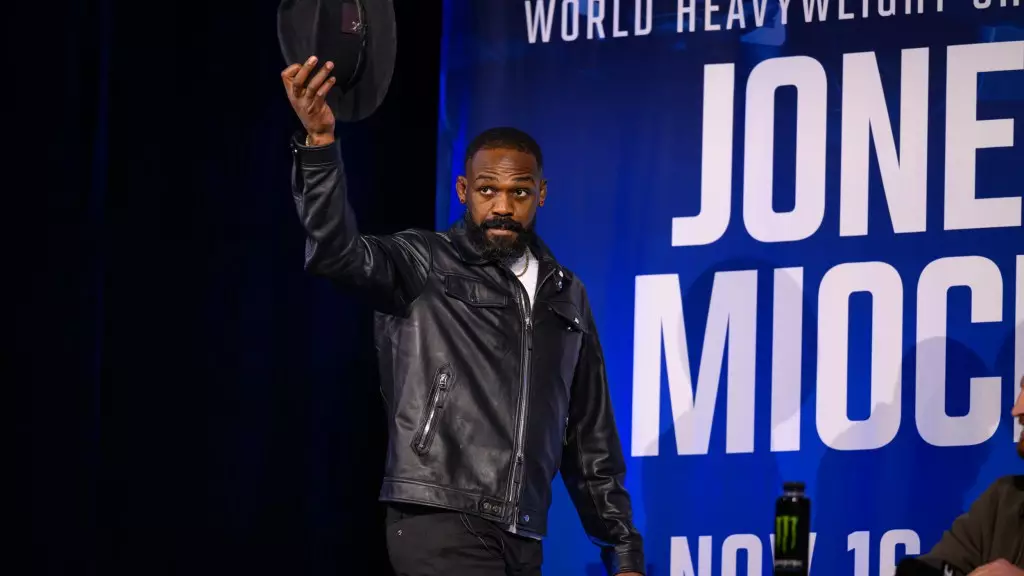As the countdown to UFC 309 intensifies, the mixed martial arts (MMA) community is gripped by anxiety over Jon Jones’ potential retirement. Daniel Cormier, a former champion himself and a close observer of the sport, has vocalized his concerns, stating that Jones’ departure from the octagon following his title defense against Stipe Miocic would not only be premature but also a significant loss for the sport of MMA. At 27 wins and just one loss, Jones has etched his name into the annals of UFC history, but conflicting narratives about his future have begun to overshadow his legacy.
The fact that Jones has publicly dismissed the idea of unifying the heavyweight championship with interim champion Tom Aspinall raises eyebrows. Furthermore, he has signaled that facing Alex Pereira might be the only scenario that could prolong his career, a stance contradicting UFC CEO Dana White’s clear intention for Jones to either fight Aspinall or retire. The tense dynamics surrounding Jones illustrate the complexity of professional sports management and contractual obligations.
Cormier’s perspective shines a spotlight on the inherent unpredictability of Jones’ career trajectory. He believes that a decisive performance against Miocic could reignite Jones’ fighting spirit, potentially leading him to reconsider his retirement plans. Cormier’s reflections touch on a significant theme in sports: the longing for resolution and closure. For Cormier and fans alike, a showdown between Jones and Aspinall isn’t just a fight—it’s a necessary conclusion for a heavyweight division that seems poised for transformation.
Cormier’s worry about Jones departing while still at the height of his powers echoes a broader sentiment among MMA enthusiasts. Legends like Georges St-Pierre and Khabib Nurmagomedov left the sport when they were still perceived as competitive forces, but not every fighter shares that discipline or foresight. Cormier’s contention that such a decision would undermine the integrity of the sport emphasizes the idea that champions owe it to their fans and the sport to stay until they can no longer compete at a world-class level.
The implications of Jones potentially stepping away from the sport are multifaceted. The heavyweight division, led by towering figures such as Miocic and now possibly Aspinall, would undergo seismic shifts in its hierarchy without Jones. The excitement surrounding future matchups would dim, eliminating the prospect of historic moments involving one of the greatest fighters the sport has seen. Cormier’s desire for a title unification battle underscores a fundamental aspect of competitive sports: the need for resolution in championship narratives.
While the MMA landscape holds the promise of thrilling bouts, it is essential for fighters like Jon Jones to engage in meaningful competition even at the twilight of their careers. Cormier’s commentary presents a clarion call for Jones to continue fighting—not just as a personal endeavor, but as a responsibility to the sport, its athletes, and the fans who revere them. The future of MMA lies in its ability to tell compelling stories, and Jon Jones’ next moves will undoubtedly shape that narrative for years to come.

